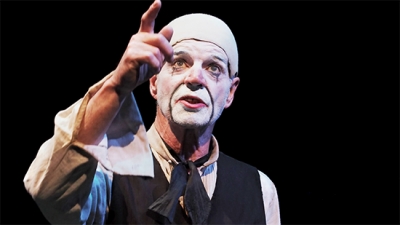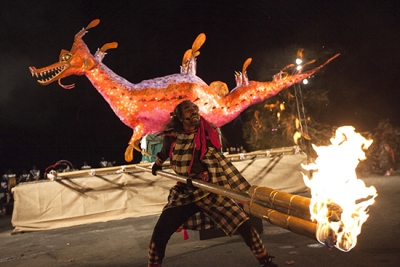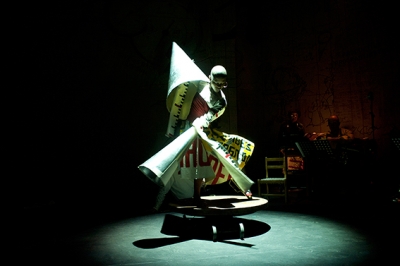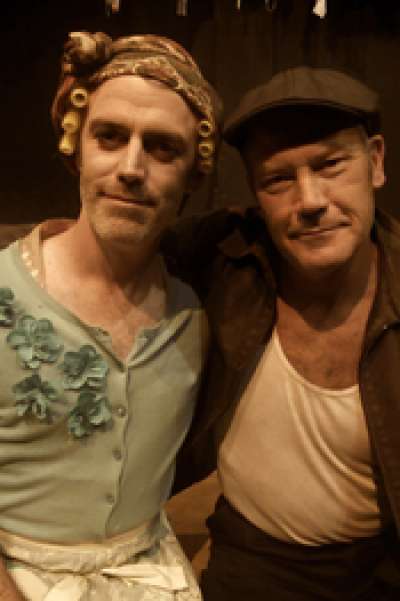ABR Arts Performing Arts
The notion of the sad clown probably has its origins in prehistory; the mockery of pain and sorrow is such an embedded human trait that indigenous cultures around the world embraced it long before it became a trope of commedia dell’arte. Pierrot, with his iconic painted white face ...
... (read more)The streets of Hobart are especially cold and quiet on the longest night of the year. Those out and about are simply commuting from place to place, wrapped in scarves, hats, and jackets. Some head towards St David's Cathedral to attend Heart of Darkness, the penultimate performance of ...
... (read more)As a not-quite-indefatigable cultural itinerant, my memories of Perth are all of festival time. Usually, my arrival is the signal for the temperature to leap into the mid-forties, imbuing the experience with a patina of sweat and a dose of climatic paranoia. PIAF 2016, artistic director Wendy ...
... (read more)You don’t have to be an avid David Bowie fan to be impressed by the breadth and detail of David Bowie Is, currently showing at the Australian Centre for the Moving Image (ACMI) in Melbourne. Imported from London’s Victoria and Albert Museum (V&A), where it was their most successful show to date, it examines the fifty-year career of one of the most suc ...
For two non-indigenous artists to take a story that has deep meaning for an indigenous community and turn it into a dramatic cantata is an exploit fraught with danger. Australian culture is littered with attempts by white artists to incorporate indigenous themes into their works; works which have foundered due to their authors’ patronising assumption that they can ...
When Brecht wrote The Good Person of Szechuan (1939–42), he had been influenced by the colour and brashness of Chinese theatre, whose archetypal heroes and villains underpinned his concept of the Alienation Effect. Brecht, ever the political theorist, wasn’t interested in characters with whom the audience empathised, or of employing Stanislavski-based a ...
Hilary Mantel’s Booker Prize-winning novel Wolf Hall has now been dramatised, along with its sequel, Bring up the Bodies. Brian McFarlane, a regular ABR film and theatre critic, caught the new Royal Shakespeare Company production in London.
If, like me, you were not a fan of Hilary Mantel’s historical doorstops, Wolf Hall (2009) ...
After two hapless ventures into the world of Verdi in 2013 (his bicentenary year), Opera Australia has given us an entertaining new production of Rigoletto – one that will probably stay in the company’s repertoire for as long as its lucrative predecessor.
Elijah Moshinsky’s slick production (1991), which leaned on Fellini’s La Dolce Vita, was just one of many radical updatings of Verdi’s 1851 masterpiece, which had its première in Venice. Director Roger Hodgman bucks this trend and restores the opera to sixteenth-century Mantua.
... (read more)Hobart is the ideal place in which to have a festival. Big enough to have other attractions but small enough so that the festival becomes a major event rather than just another diversion. A walk through Battery Point, followed by a long lunch at Salamanca Place with congenial fellow festival goers, or a trip out to MONA to wander through the psyche of David Walsh are exceptional ways to spend the day before the next performance.
... (read more)



